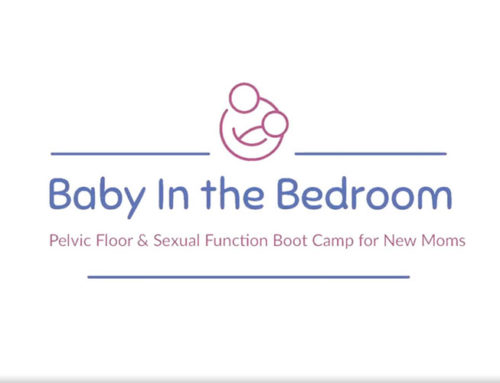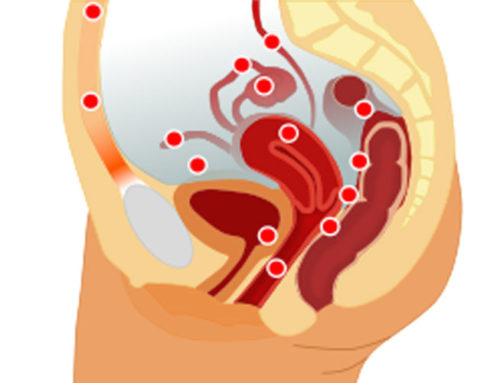It’s time to start seeing ED as your Everyday Health Dipstick
 “Bill” is a man in his 40s who came to see me about two months ago for erectile dysfunction. As I always do when a patient brings up an ED complaint, I discussed Bill’s health outside of his erectile concerns with him. He had recently been diagnosed with diabetes, and had high cholesterol for several years.
“Bill” is a man in his 40s who came to see me about two months ago for erectile dysfunction. As I always do when a patient brings up an ED complaint, I discussed Bill’s health outside of his erectile concerns with him. He had recently been diagnosed with diabetes, and had high cholesterol for several years.
He complained of daily fatigue, and having lost interest in sex in addition to problems getting an erection, all of which were causing conflict in his marriage. He had tried erectile medications which at first were helpful, but they had recently become less effective.
It was obviously a frustrating and depressing time for him.
What is Erectile Dysfunction (ED)?
“Doc, you gotta fix this!” is a common plea from men who have trouble with erections, and the distress is plain across their faces.
Erectile dysfunction (ED) is the persistent inability to develop or maintain penile erection sufficient for satisfactory sexual performance, and is one of the most common sexual complaints by men of all ages.
While many tend to think of erectile problems are primarily related to elderly men, the prevalence of ED in younger men is higher than previously thought, with recent studies showing ED occurs in 20 percent of men less than 40 years old, and the prevalence increasing each decade to 70 percent in men over the age of 70.
Worldwide, it’s estimated that ED affects about 100 million men, and that number is expected to jump to 322 million by 2025 partly because of our rapidly aging population.(1) Many men find ED bothersome, embarrassing, or a sheer annoyance, but most do not understand that penis function is a critical barometer of underlying maladies that are far more serious.
Despite ED having been long regarded as a disease of older men, erectile function change is not a normal part of aging. Research has continued to illustrate the definitive connection between sexual function and long term, chronic diseases like diabetes, heart disease, prostate disorders, and endocrine dysfunctions. Mood disorders and sexual side effects from medications are also common factors that change a man’s sexual response. It is the more frequent occurrence of chronic health issues in older men that accounts for increased ED with age, not the aging process itself. A man is at increased risk for erectile function loss the more advanced an underlying disease becomes, which is why ED matters more than most men and their partners may initially think.
All men lose their erection at some time during their sexual life and a once in a while fleeting experience is normal. But a persistent loss of erectile function despite adequate sexual stimulus, either in partner activity or self-stimulation, and a reduction of spontaneous non-sexual activity related erections (night time or morning erections) are important signs that that a physician should take a look under the car hood.
Erectile Dysfunction and Cardiovascular Risks
ED is linked to cardiovascular disease by exhaustive medical studies, and has been found to be an independent risk factor for heart disease comparable to high blood pressure, high cholesterol, diabetes, obesity and smoking. I often try to explain to patients that the penis is essentially a vascular bed, and because penile vessels have a smaller diameter than coronary arteries, the earliest manifestation of heart and vascular disease can often develop first in the penis. Men with ED have been shown to have a 62 percent increased risk of having a heart attack later in life, and are at risk of developing diabetes 10 to 15 years earlier than a man without ED.(2)
Studies have shown that men tend to die about five years earlier than women, and are far less likely to be proactive about their health. Men are therefore at greater risk overall of developing of long term disease which leads to a higher mortality rates from cancer and cardiovascular disease. One thing that does tend to motivate a man to see a physician: a penis that stops working well.
Sexual medicine is a specialty that is designed to address the underlying root cause of erectile changes, and improve a car engine problem not just focus on the gear shift that might be sticking. When men come to see me for change in erectile function, we discuss psychological health, relationship status, but also run detailed investigations into cholesterol, blood sugar, testosterone and other hormone levels. Prostate health and neurological diseases are common culprits of which ED may be the first sign. Rarely ED is the first indicator of a prolactin secreting brain tumor, the most common of which is called a prolactinoma.
Understanding what is causing ED is the most important step to pairing an appropriate treatment. Initial strategies of a good medical practice is to alter controllable risk factors shared with pathophysiology of cardiovascular disease, including smoking, obesity, alcohol abuse as well as fatigue, depression and medication side effects.
Addressing psychological factors associated with ED is imperative. Even in men shown to have organic causes to erectile change, cognitive behavioral sex therapy has been found to improve sexual functioning.
Additional Treatment Options for ED
However, most men will need additional form of erectile dysfunction treatment beyond these initial measures. Current therapies include devices such a penile loop which provide restriction at the base of the penis to prevent blood flow return and therefore sustain an erection, oral medications, oral botanical therapies, penile injection therapy, vacuum devices, and surgical strategies.
Numerous botanical and nutrient therapies have been suggested to improve erectile function, including Horny Goat Weed, Pycnogenol, Arginine and many others. Most of these products have only modest medical literature to support their use, and many over the counter preparations in fact have no scientific basis. However herbal and nutrient therapies can sometimes be a good fit for men who wish to avoid medications. I always recommend physician grade products with independent quality testing, and to only take supplements while under the care of licensed healthcare provider.
There are four different oral medications to improve erectile function: Viagra, Levitra, Cialis and Stendra.
All of these medications have slight differences in how to optimally use them. Most are prescribed prior to sexual activity; however Cialis is available in a daily dose that has been shown to be as effective as on-demand use. Men are often eager to start a pill when they are struggling with erectile function, and often a medication does help. However it is important to understand that sexual stimulus is necessary for these medications to be effective.
Performance anxiety and relationship discord can render a medication for ED useless if not properly addressed. Furthermore many men find erectile medications to be cost prohibitive for long term use, and insurance rarely pays for them. However the most important consideration of an erectile medication is that if an underlying chronic disease is not identified and treated, a pill is merely a bandage. Over time erectile function will continue to deteriorate if the associated long term illness is not corrected, leading to the need later for more invasive therapies.
Penile injections, intra-urethral suppositories, and vacuum devices are the next line of treatment primarily reserved for men who have failed lifestyle modifications and not seen results with sex therapy or oral botanical and medication treatments. Vascular surgery or penile implants are options for men who have utilized all other treatment options.
It is never too early to reframe thinking about the importance of sexual function for men. It is far more effective to begin lifestyle modifications to optimize preservation of sexual function than it is to reverse vascular or endocrine disease once it has progressed far enough to impair an erection. For men who are concerned at the development of erectile changes, it is wise to see a doctor sooner rather than later.
If a man has not had an erection in 5 years, or if he has undergone invasive surgery such as a prostatectomy (removal of the prostate) it is unlikely lifestyle changes will reverse symptoms. However if ED is occurring 20-30 percent of the time, which is commonly how symptoms begin, lifestyle changes can have significant impact on reversing erectile loss. A multitude of studies have shown the direct improvement healthier living has on erectile function, including quitting smoking, increasing even modest amounts of exercise, and eating a whole food diet focusing on fruits, vegetables, nuts, whole grains and olive oil. Research has also shown that men who combine an erectile medication with lifestyle changes such as weight loss and improved fitness have far better results than those simply taking a medication alone.(3)
How to Take Control of ED
Fortunately for Bill, after detailed medical evaluation and discussing all the likely factors involved in his sexual function change, he took on the challenge and radically improved his diet, lost weight, and adopted regular fitness activities in life. He dropped his blood sugars significantly, reduced his cholesterol, and revived his testosterone levels which had been low.
When he recently returned to the office, he declared “Doc, I feel better than I ever have in my life! I used to sneak to my car to take a nap in the middle of the day, but now I’m buzzing. I don’t even need erectile medications anymore. My sex life is better than I can ever remember it,” he reported with a huge grin.
Decades of medical research have proven erectile function is a dipstick indicating underlying disease. When my patients learn to appreciate that their sexual function is a window into their emotional as well as physical health, and take the necessary steps to address the root cause of sexual concerns, not only does sexual function improve but health flourishes in many other areas as well including mood, energy, and relationship quality.
Medical science has clearly proven that lifestyle measures which lead to resolution of erectile dysfunction also result in the prevention of serious chronic diseases such as diabetes and heart disease. Ultimately great sex leads to longer disease-free living and vitality beyond our private parts.
References
- emedicine.com. Accessed April 29, 2015.
- Pastuszak AW, Hyman DA, Yadav N, et al. Erectile dysfunction as a marker for cardiovascular disease diagnosis and intervention: a cost analysis. J Sex Med. 2015;12(4):975-84.
- Simon RM, Howard L, Zapata D, Frank J, Freedland SJ, Vidal AC. The Association of Exercise with Both Erectile and Sexual Function in Black and White Men. J Sex Med. 2015.
























